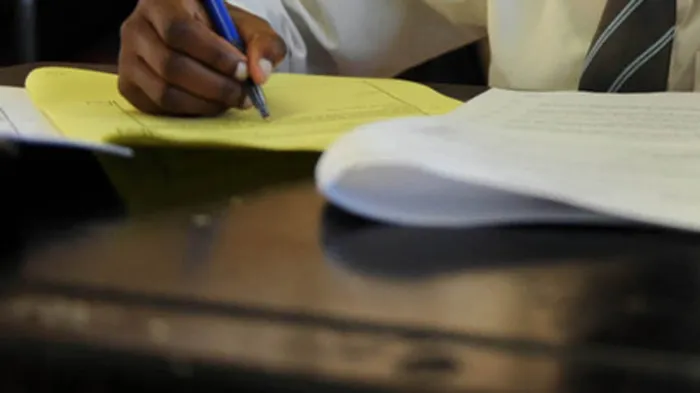Matric students to tackle final matric exams in their mother tongue

Pupils writing exams.
Johannesburg - The Department of Education in the Eastern Cape will this year test matric students in Xhosa and Sotho, in their final examinations set to start in October.
Having introduced the mother tongue pilot project in 2020, the department said that more than 87 000 matric pupils were expected to write the trial examinations in the two vernacular languages.
The department’s spokesperson, Malibongwe Mtima, in an interview with SABC News, said that the trial would seek to elevate the country’s indigenous languages as mediums of instruction in the province and then across the country at a later stage.
“The Department of Basic Education is also moving forward with plans for ‘mother tongue teaching’, enabling students to study and write exams in their home languages,” Mtima said.
Mtima added that around 800 schools in the province were participating in this initiative, with positive outputs from the high school students.
“We are happy with what we are getting. On the six subjects we have identified, the pupils are submitting on time and there are no hiccups,” he said.
The subjects that will be translated into the two languages for final exams are mathematics, physical science, life sciences, history, agricultural science and accounting.
“As the Constitution permits, we ensure that all languages are given equitable status, so that at least learners or people that are speaking certain languages, do not feel inferior. At the end of the day, we are using it for academic purposes, to also ensure that these learners develop and attain greater levels,” said Mtima.

Mtima added that collaborative efforts between the department, the National Lexology, the Xhosa unit and the Pan South African Language Board (PanSALB) all contributed to the successful translations of the chosen subjects.
Education researcher from the University of Cape Town Xolisa Guzula told GroundUp that while she was positive about the development of educational materials and curriculum in Xhosa, she stressed the need to account for Xhosa’s various dialects.
She also said that while high school offered education in indigenous languages, some South African universities have not yet offered bilingual degrees, which could put matric students at a disadvantage if they chose to go to a tertiary institution.
“Standard Xhosa also has the potential to fail those children whose dialects were never included in the standardisation of Xhosa,” said Guzula.
Minister of Basic Education Angie Motshekga said that provinces like the Eastern Cape were expected to follow through with the use of mother tongue education based on their respective locations.
In June in the National Council of Provinces (NCOP), Motshekga announced that several languages would be added as additional subjects to the country’s school curriculum, including Khoi, Nama, San and sign languages.
“I think we are the only continent teaching children in a language that is not their home language, and this continues to contribute to under-achievement and poor performance. We must have a policy shift in this area,” she said at the Budget vote debate in the NCOP.
The Sunday Independent contacted the Eastern Cape Department of Education several times but received no reply at the time of print.
Related Topics: